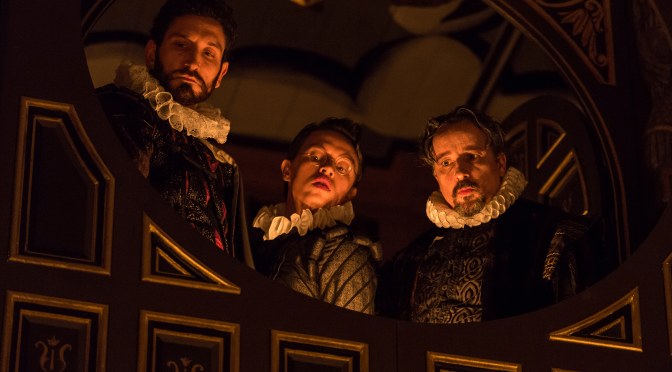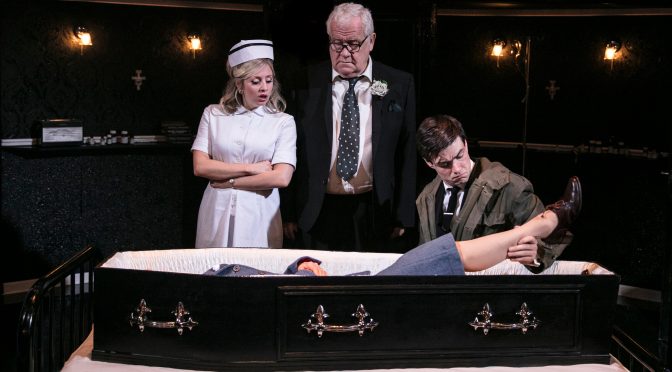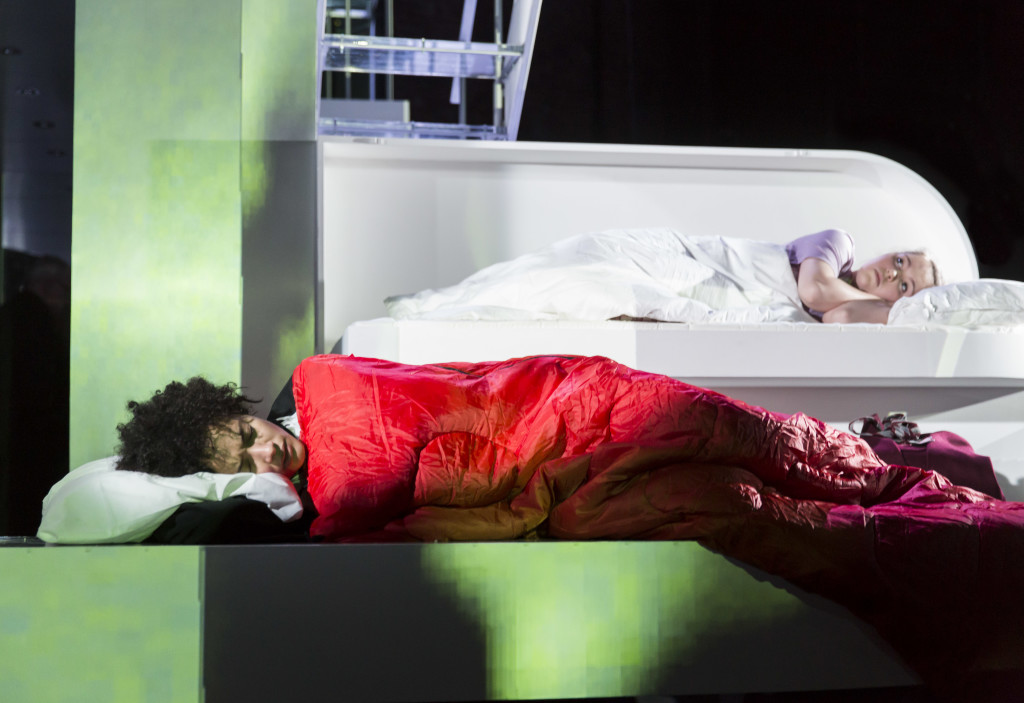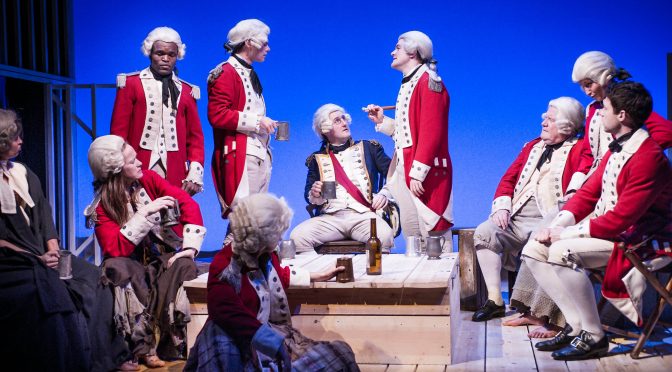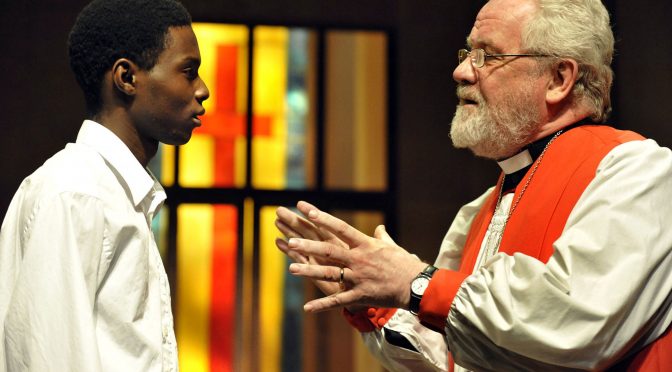Running in repertory with the excellent Romantics Anonymous, this new play by Anders Lustgarten is a similarly accessible affair, with an emphasis on entertainment. Everyone loves a bit of Tudor history and this story of spymaster Francis Walsingham, impeccably performed by Aidan McArdle, delivers plenty of it. While the famed intelligencer comes to find himself trapped by “too many stories” – from the Babington plot, to the Spanish Armada – Lustgarten condenses the happenings expertly, and the exciting intrigue is perfectly marshalled by director Matthew Dunster.
We get a monarch – Good Queen Bess, of course – none other than Tara Fitzgerald rising to the task with the aid of costumes by Jon Bausor. She appears gloriously like a painting at first, in a dress that itself deserves an award. But this is a far cry from the Virgin Queen. Bringing Elizabeth I to the stage must count as the biggest challenge for both writer and performer – and it becomes their biggest achievement. It’s a new take on the queen we can recognise and enjoy: this bullying and foul-mouthed “mad dog” (Lustgarten does swearing on stage very well) is used for dramatic purposes to great effect.
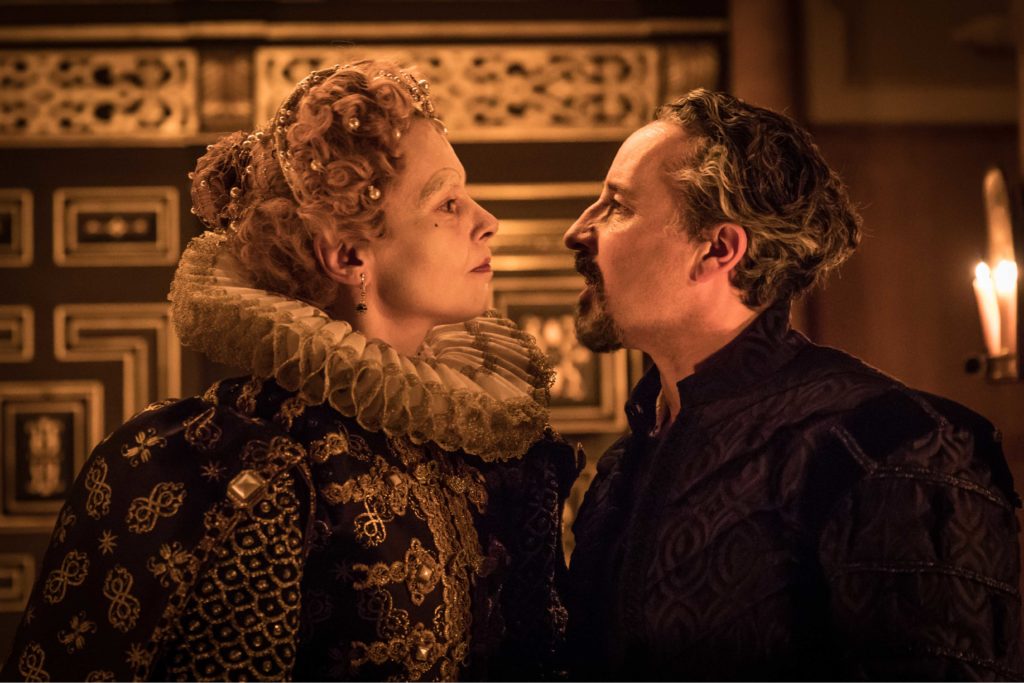
Lustgarten has a reputation as a provocative and political writer. His version of Elizabeth might possibly shock if you take his contrary streak too seriously. But the politics, in the form of parallels with our own increasingly surveyed state, are neat and often funny. It’s never subtle, but if you have good point then why not shout about it? Small gripes are the piece’s lack of peril (much of the tension comes from Dunster’s brilliant use of the candlelit venue and composer Alexander Balanescu’s contribution), and that emotion is generally in short supply – although McArdle does his best. But as a spy story the history works as well as you would expect and there are strong turns from espiocrats Burleigh, Pooley and Phelippes played by Ian Redford, Edmund Kingsley and Colin Ryan.
The Secret History is historical fiction that uses the past to tell a new story about our own times. Having done his research, Lustgarten is entitled to play around – and don’t forget that there have been plenty of outlandish theories about Elizabeth. Some of the speculation here is far-fetched, and not all of it is sure-footed: Lady Frances and Sir Philip Sydney have some distinctly modern sensibilities, while a nice try at depicting a working-class perspective isn’t given time to develop. The play escalates into conspiracy theory quickly – but spies are ripe for that and it all works well theatrically. With a nice twist to solidify its thought- provoking ambitions, we are sent home happy and, just maybe, a little wiser about the theatrics behind power.
Until 16 December 2017
Photos by Marc Brenner

